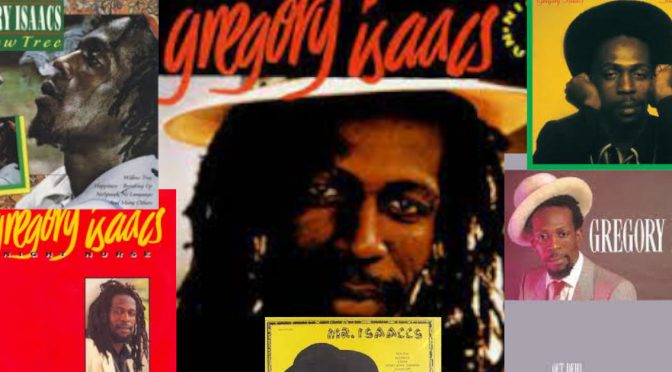
Winners
Everywhere I go in China, the first question people ask me is “Where are you from?”
I reply in Mandarin “牙买加,” [pinying: Yámǎijiā; pronounced Yah-My-JAH; in other
words JAMAICA!], and then I ask, “Do you know it?”
With few exceptions–everywhere from Beijing to Xishuangbanna–everyone says,
“Yes!”
As the language barrier sometimes prevents really sophisticated communication, one shopkeeper in Suzhou started running in place to show he knew exactly where I was from: the land of fast runners!
I know I have Usain Bolt and a pantheon of Jamaican gold silver and bronze medal winners specifically in the 2008 Beijing Olympics as well as those throughout Olympics history to thank for this!
So, when Author Rachel Irving found me through Jamaicans.com and sent me an advanced copy of the book, Jamaican Gold: Jamaican Sprinters! , I was ecstatic and eager to learn more about it and review it for everyone here in China and the rest of the world!
Sprint Version
So, the sprint version of my review is, ahem: FAAAAAAANTASTIC!
Long-distance version
But, of course, I’m not one for short versions of anything I do (read that anyway you choose),
so I’ll say this:
“There are two types of people who should own a copy (or two) of this book:
(1) Jamaicans and
(2) the people who, while not blessed to share the honor of being Jamaican, nonetheless, have the
equally enviable position of being able to WATCH Jamaicans conquer the world!”
I love to share information, but if I were to share every fascinating tidbit of information I wanted to, I’d essentially end up reproducing the book in its entirety in this post! I’ll simply say that the list of “firsts” and “onlys”–when compiled and viewed in one place–is staggering.
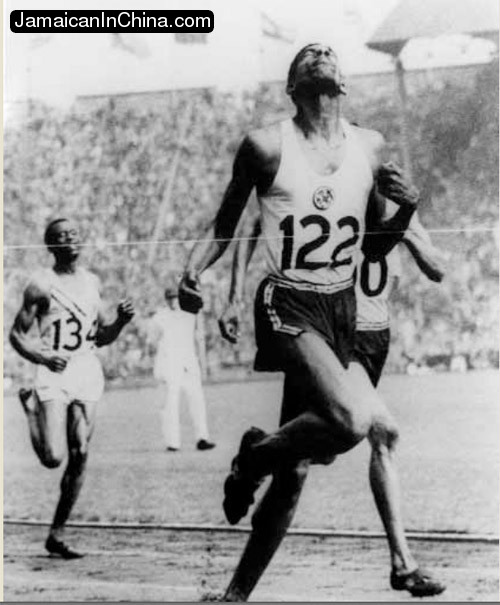
ARTHUR WINT created history by winning Jamaica’s first gold in the men’s 400 metres in the 1948 Olympic Games in London. This win began a tradition of excellence by Jamaican sprinters.
(National Library of Jamaica photograph.)
Okay, okay, just a few:
“Merlene Ottey holds the record for the female athlete who has won the most medals in the Olympic Games.”
“Jamaica became, and remains, the only country apart from the United States to hold the world records in both male Olympic relay events.”
“Fittingly, sitting in the centre of the picture beside Aleen Bailey is a member of that other historic relay team, the oldest man in the picture, eighty-one-year-old Leslie Laing, who was also the first non-US athlete to make it to two Olympic 200-metre finals. Along with Arthur Wint, Herb McKenley and George Rhoden, a full-strength US team was beaten in this event in head- to-head competition as Jamaica became, and still remains to date, the only non-US team in the history of the Games to set a world record in this event.”
That quote refers to a historic photograph in the book that depicts “…all seven decades of Jamaica’s Olympic competition, from 1948 to 2004, with team members from fourteen of the fifteen Games in
which Jamaica has participated.” That photo and the documented accomplishments of each person in it is an amazing chapter and a book unto itself!
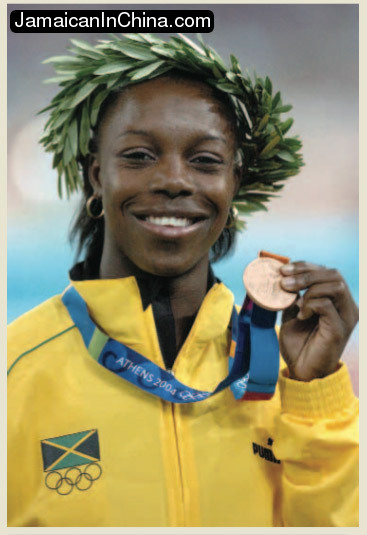
The most decorated track and field athlete in Jamaica and possibly in the world is VERONICA CAMPBELL-BROWN. Veronica has won medals at every level of international competition, from junior to senior. In fact, she could be considered the world’s most decorated female athlete. To date, she is a five-time Olympic medallist (three gold, one silver, one bronze); six-time World Championship medallist (one gold, five silver); 60-metre World Champion in 2010; and second female athlete in history to win the 200 metres back-to-back at the Olympic Games (2004 and 2008).
Scientific evidence
Those of us who are Jamaican simply accept the phenomenon for what it is: We likkle but we talawah! The rest of the world, however, wants a scientific explanation. So, the editors offer some very scientific evidence, as well as educated insights–backed up by a ton of research–into why Jamaicans dominate the track and field events, specifically sprinting. Is it genetics? Is it environment? Perhaps something entirely unexpected is the cause. I won’t reveal the secrets in this review, but you won’t be disappointed.
Personal profiles
My favorite parts of the book are the personal profiles. Here’s where you really get to know the people behind the accomplishments.
“Winning in those early years meant little to Cynthia, as running and winning for her was done only for fun. There was just no pressure, she said. No real emphasis was put on winning. All she can remember was the great fun she had, but perhaps more important to her was the socializing and the camaraderie with her training partners, teammates and coaches over the years.”
[about Dr. Cynthia Thompson, Jamaica’s first sprint queen; 1948 Olympics]
“Dr Paul Auden, one of his early mentors, said that young Bolt had an in-built mechanism that would prompt him as to what time he was doing over a particular distance. From an early age, Usain was his own
stopwatch.”
[about Usain Bolt, the world record and Olympic record holder in the 100 metres, the 200 metres and
(along with his teammates) the 4 x 100 metres relay. He is the reigning World and Olympic champion in these three events.]
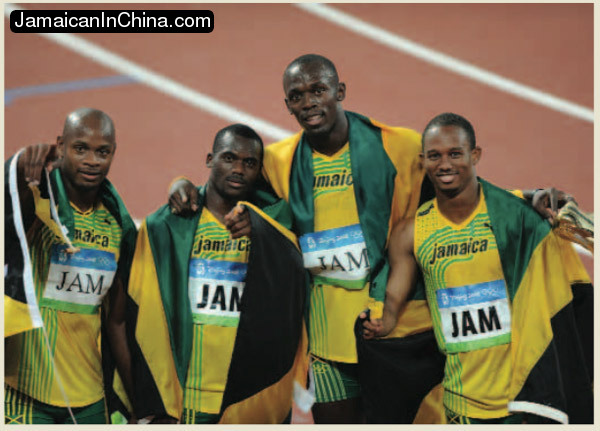
The 4 × 100-metre men’s relay team set a world and Olympic record of 37.10 seconds at the 2008 Olympic Games in Beijing. From left are ASAFA POWELL, NESTER CARTER, USAIN BOLTand MICHAEL FRATER posing after their victory.
(Jamaica Observer photograph.)
And, trust me, as lengthy as you think this review is, I have barely scratched the surface of what you’ll discover, learn and be reminded of when it comes to Jamaican Gold! You’ll also get beautiful snapshots, historic documentation and photos, insights into Jamaican history, lifestyle, culture, our educational system, belief system and the effects of all of these on creating world-class athletes and citizens, and A WHOLE LOT MORE!
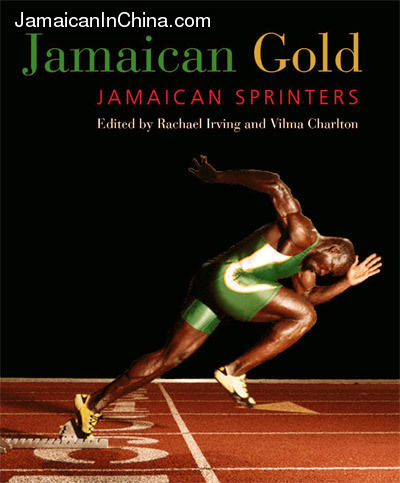
Contributors
Finally, there are a host of contributors to thank for this amazing work. However, I’ll mention the two credited on the cover.
| Rachael Irving, PhD, is a research fellow in the Department of Basic Medical Sciences, Faculty of Medical Sciences, University of the West Indies, Mona, Jamaica. She is a member of the International Centre for East African Running Science (ICEARS), and the American College of Sports Medicine.
Vilma Charlton, OD, BSc, MSc, is a lecturer at the Institute of Education, University of the West Indies, Mona, Jamaica. She is a physical education specialist, an Olympian, president of the Olympians Association of Jamaica, third vice-president of the Jamaica Amateur Athletic Association and a member of the American Association of Physical Education, Recreation, Sport and Dance. |


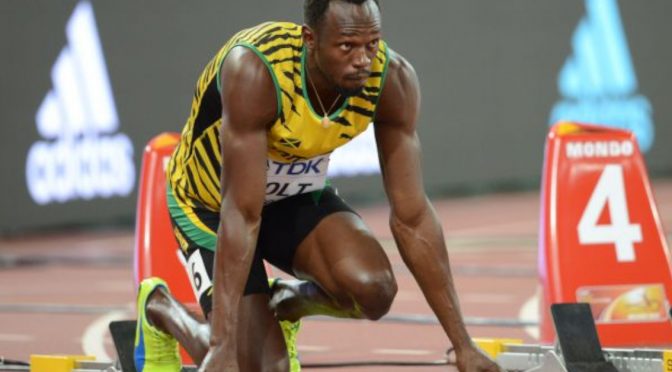
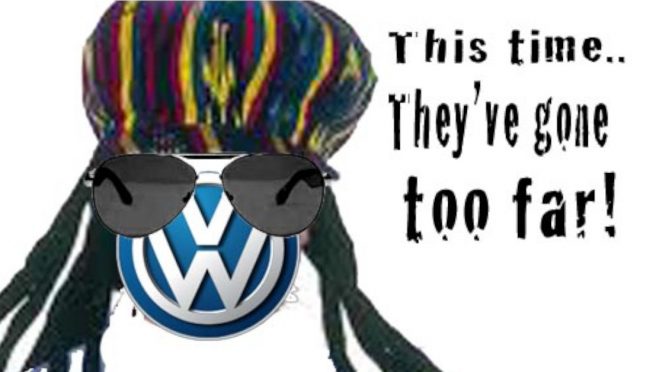


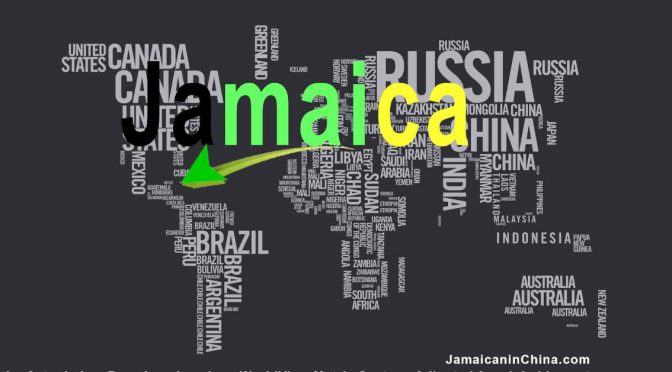




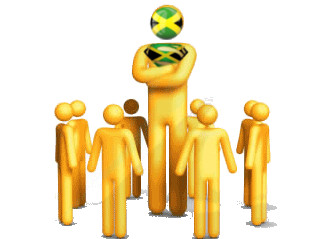
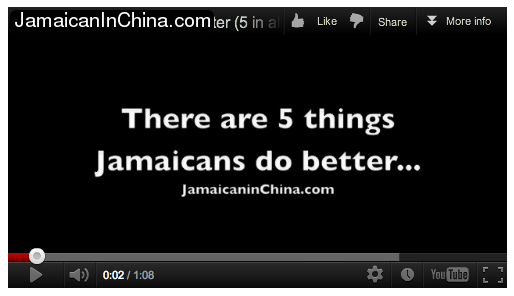
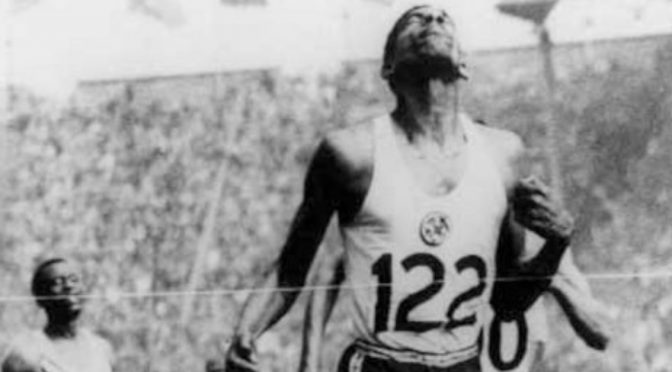






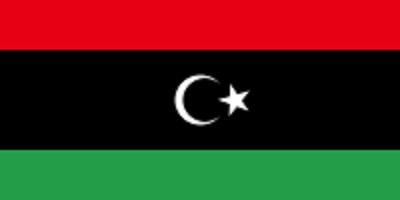
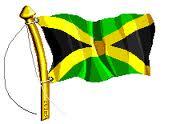 Jamaica’s flag is black, green and gold, and things seemed to be going quite well, until I got to Mauritania!
Jamaica’s flag is black, green and gold, and things seemed to be going quite well, until I got to Mauritania! 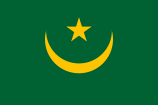 Mauritania’s is green and yellow. [According to wikipedia: The colors of green and gold are considered Pan-African colors.[3] Green is also used to symbolize Islam, and the gold for the sands of the Sahara desert. The crescent and star are symbols of Islam, which is the major religion in the nation. Some writers have also speculated that green symbolizes a bright future, and growth.]
Mauritania’s is green and yellow. [According to wikipedia: The colors of green and gold are considered Pan-African colors.[3] Green is also used to symbolize Islam, and the gold for the sands of the Sahara desert. The crescent and star are symbols of Islam, which is the major religion in the nation. Some writers have also speculated that green symbolizes a bright future, and growth.] And then, there’s Libya! [According to wikipedia: The Libya Flag was officially adopted on November 11, 1977. It is the only flag in the whole world with just one single color. There are no designs, insignia or other details on the flag of Libya . The green color is the symbol for Islam which emphasizes the long devotion and respect of people to their religion. Green is also the national color of the country. The first national flag of modern Libya was adopted in 1951, when the country gained independence. The symbols and colors on the Libyan flag have constantly been changing until 1977 when the current one was adopted. The green color also stands for Gaddafi’s “Green Revolution.”
And then, there’s Libya! [According to wikipedia: The Libya Flag was officially adopted on November 11, 1977. It is the only flag in the whole world with just one single color. There are no designs, insignia or other details on the flag of Libya . The green color is the symbol for Islam which emphasizes the long devotion and respect of people to their religion. Green is also the national color of the country. The first national flag of modern Libya was adopted in 1951, when the country gained independence. The symbols and colors on the Libyan flag have constantly been changing until 1977 when the current one was adopted. The green color also stands for Gaddafi’s “Green Revolution.”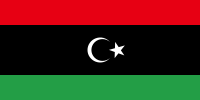
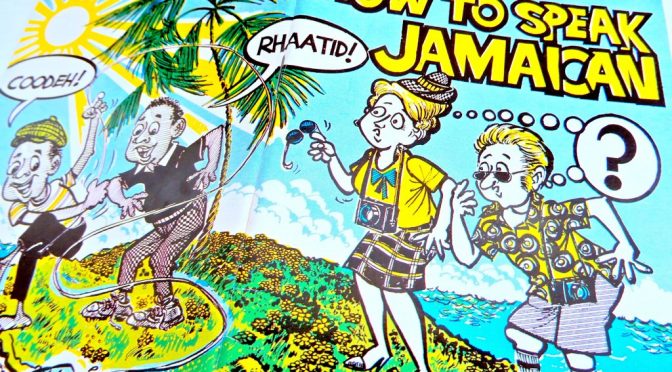
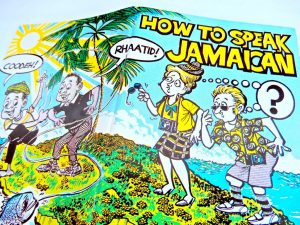



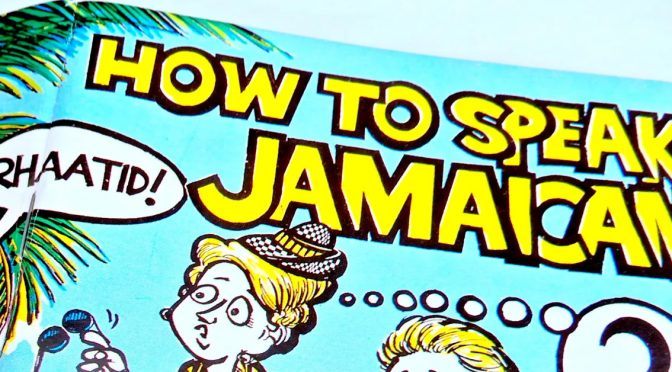
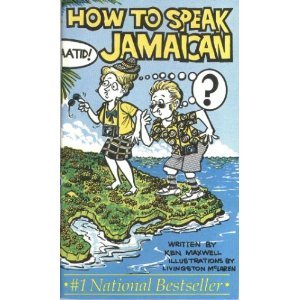 For those who have asked: Jamaica’s language is English. As a former British colony, the Jamaican political and educational system culture, habits, worldview, and social norms are influenced by British culture. (I believe my aunt in Kingston still has her 4pm cup of tea every day)
For those who have asked: Jamaica’s language is English. As a former British colony, the Jamaican political and educational system culture, habits, worldview, and social norms are influenced by British culture. (I believe my aunt in Kingston still has her 4pm cup of tea every day)